With the second anniversary of Russia’s full-scale invasion approaching in February and the European continent in the grip of deep winter, the Kremlin is redoubling its attacks against Ukraine on land and from the skies. While Russia appears to have regained the initiative along the ground front, its recent territorial gains remain minimal and have come at a terrible price in troops and materiel. Russia’s air campaign, however, has ramped up across Ukraine at levels not seen since last spring’s bombing offensive. Moscow is deploying massive, serial waves of drones, cruise missiles, and ballistic missiles — an increasing number of which are supplied by Iran and North Korea.
However, unlike last year’s winter, when Russia was mostly assaulting Ukraine’s energy and heating infrastructure, it is now pursuing a double strategy of sowing terror by striking civilian housing and destroying high-value defense industrial targets. Ukraine’s air defenses used to reliably intercept most of Russia’s bombs, but they are now struggling in winter weather against much more sophisticated attacks designed to wear them out.
Having put the Russian economy on a war footing, increased its military budget and domestic weapons production, evaded sanctions, and cultivated talks with Pyongyang and Tehran to keep supplies of drones and missiles flowing, the Kremlin is clearly expecting to make its onslaught last past the U.S. elections in November. Hardly a day goes by without a senior Russian official or state media threatening the obliteration of Ukraine as a nation.
Meanwhile, Congress is holding up Biden’s $60 billion pledge of aid to Ukraine, and Hungarian Prime Minister Viktor Orbán is blocking a €50 billion (approximately $55 billion) support package promised by the European Union. NATO partners have struggled to fulfill their commitments to increase the production of ammunition so desperately needed by Ukraine; the EU has failed since the summer to agree on stocking up the European Peace Facility, a fund created to facilitate joint weapons acquisitions. Ukraine’s Western supporters also continue to fight over the legality of using Russia’s frozen central bank reserves to help Kyiv finance a battle for survival, which according to Berkeley economist Yuriy Gorodnichenko is costing it an estimated $1 billion to 1.5 billion per day.
Yet the news is by no means all bad. In December, the EU’s heads of government decided to open membership accession discussions with Kyiv. Germany and the United Kingdom have announced they will increase their funding, respectively, to $8.5 billion (doubling current funding by more than $4 billion) and $3 billion (an increase of $216 million over last year). The European External Action Service (the EU’s foreign ministry) will audit weapons deliveries by the bloc’s member states. Ahead of the second anniversary of the full-scale invasion and a European Council meeting on February 1, European leaders are readying new sanctions against Russia; EU officials are also hopeful that, to get an additional €50 billion in aid to Kyiv, they can either strike a deal with Orbán or deploy an off-budget plan to bypass his opposition.
The national security advisors of 83 countries attended a recent meeting that was hosted by neutral Switzerland in cooperation with Kyiv on a Ukrainian peace plan — including a significant number from the Global South, where numerous countries have been inclined to sympathize with Russia At the World Economic Forum in Davos, Ukrainian President Volodymyr Zelenskyy received a warm reception from world leaders. U.S. President Joe Biden’s national security adviser, Jake Sullivan, promised that the United States and its partners would continue to stand by Zelenskyy.
The Brookings Institution is committed to quality, independence, and impact.
We are supported by a diverse array of funders. In line with our values and policies, each Brookings publication represents the sole views of its author(s).


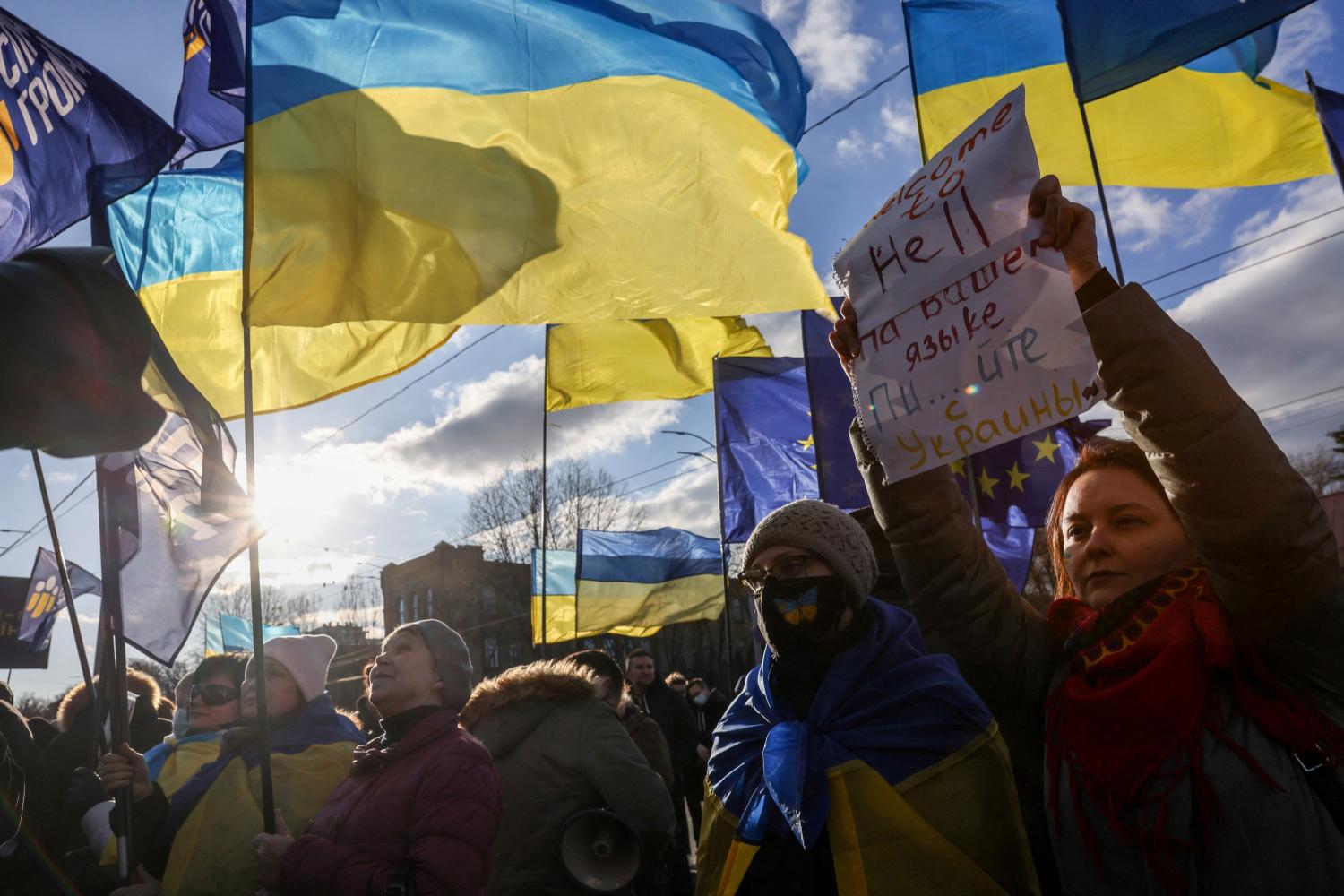


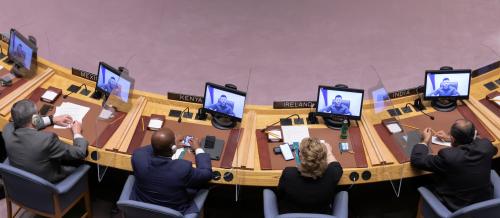
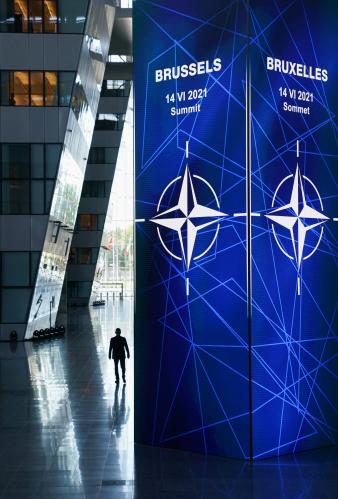
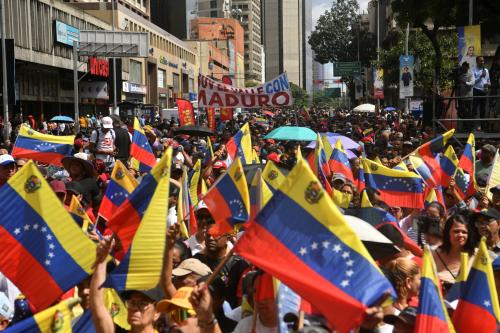
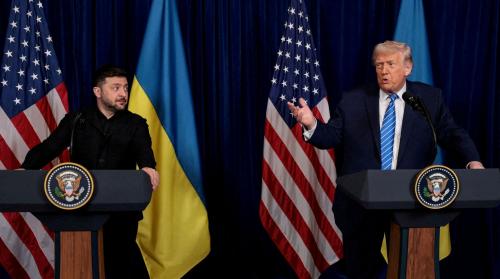
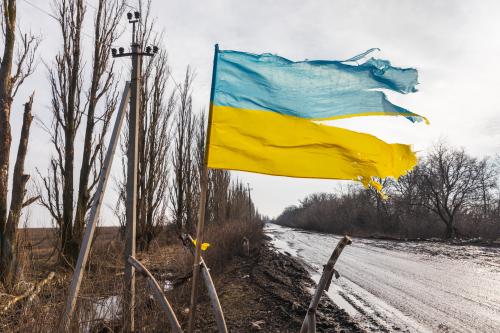
Commentary
A midwinter update on Ukraine
January 26, 2024